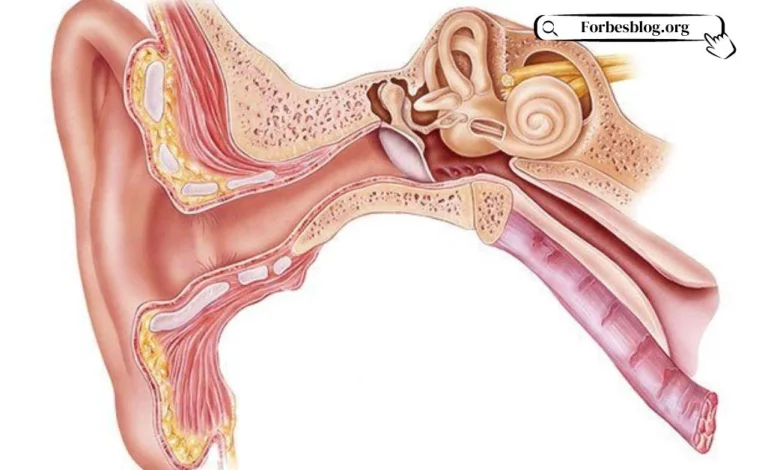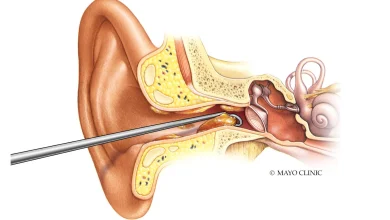5 Most Common Problems Affecting the Ears

There are many conditions that affect the ears. Some of them may impair hearing, while others may result in infection or even balance problems. It is therefore recommended to have a professional check your ears and hearing as frequently as possible. They are able to identify problems, examine any issues, and hopefully provide you with a clear solution that will let you resolve the problem. To help you gain more understanding, let’s examine some of the most common problems affecting the ears.
Table of Contents
Sensorineural hearing loss
Damage to the inner ear or the hearing nerve itself is always the cause of sensorineural hearing loss. This usually happens when some of the cochlea’s hair cells are damaged.
This is the most typical type of hearing loss. Some contributing factors include aging, injuries, exposure to loud noises, diseases, and more. It is also crucial to note that there is no medical or surgical way to treat it. The problems that this kind of hearing loss causes can be reduced by using hearing aids.
However, the variety of hearing aids available is quite large, so maybe finding a hearing professional who can guide you in the process of finding the best hearing aid for your type of hearing loss is the best course of action. A good idea is to also look up “the best hearing aid parts near me” on the internet to find out which brands are easier to repair in your particular location.
Conductive hearing loss
This type of hearing loss typically develops in the middle or outer ear, where sound waves cannot travel to the inner ear. This is frequently the result of some sort of obstruction in the middle or outer ear, such as earwax, or it could be that there is a fluid present that prevents the soundwaves from entering. This kind of hearing loss may also be brought on by a bone abnormality or an injury to the eardrum.
Fortunately, there are some cases where conductive hearing loss can be treated surgically or medically. Children who have ear infections or who jam a foreign object into their ear and block the ear canal frequently experience this type of hearing loss.
Tinnitus
One or both ears may hear a buzzing or hissing, which is the defining trait of tinnitus. These buzzes could be occasional or persistent. However, they are most noticeable when the surrounding area is silent. Furthermore, tinnitus can be deafening when there are no other sounds in the area to focus on.
Subjective tinnitus and objective tinnitus are the two main categories of tinnitus. If they are subjective, only the patient can hear them. The doctor may notice rarer, objective tinnitus. Tinnitus currently cannot be treated, but some alternative treatments can still help with the discomfort.
Though they may not always be aware of it, an estimated 80% of those who experience tinnitus also have hearing loss. That is why a lot of people who experience tinnitus symptoms get their hearing checked. However, the condition can occasionally exist even if your hearing is perfectly clear. Tinnitus is not a disease, despite the fact that hearing loss and tinnitus are frequently closely related.
Presbycusis and Hyperacusis
Presbycusis is an aging-related disease that causes progressive hearing loss. It typically manifests after the age of 50 and may accompany tinnitus. A particularly incapacitating pathology known as hyperacusis is characterized by an increase in the perception of sound volume. Headaches or pain from a particularly low noise tolerance threshold is frequently brought on by hyperacusis.
The frequency and severity of hearing fatigue are increased. Additionally, the person is sensitive to loud, impulsive noises. This risk profile may be more vulnerable to hearing loss and the onset of hyperacusis. Cochlear sequelae are seen after one or more hearing traumas.
Meniere’s Disease
Meniere’s disease affects the inner ear and is frequently accompanied by tinnitus, hearing loss, and dizziness. The disease’s origins are still a mystery. It typically happens unexpectedly and lasts for two to 24 hours. Often medication is used to treat this disease. Sometimes even an operation might be considered if complications develop.
Meniere’s disease can be brought on by a variety of things, such as traumatic injury, infection, ischemia, autoimmunity, and heredity. Together, these factors point to a multifactorial cause, but they also continue to raise questions about the disease’s origins. Although the disease is not very common, there is a lot of information available about this illness.
Final Thoughts
If you are experiencing any symptoms that indicate hearing loss, tinnitus, or any other of the listed problems, and even if you have not had your hearing checked, make an appointment with an audiologist for a hearing evaluation as soon as possible. It’s better to be safe than sorry as the sooner an issue is addressed, the faster it can be handled.
However, if it is too late to do anything about it, we most definitely advise turning to the right hearing aid and spending as much money on it as you can.
Visit for more page




